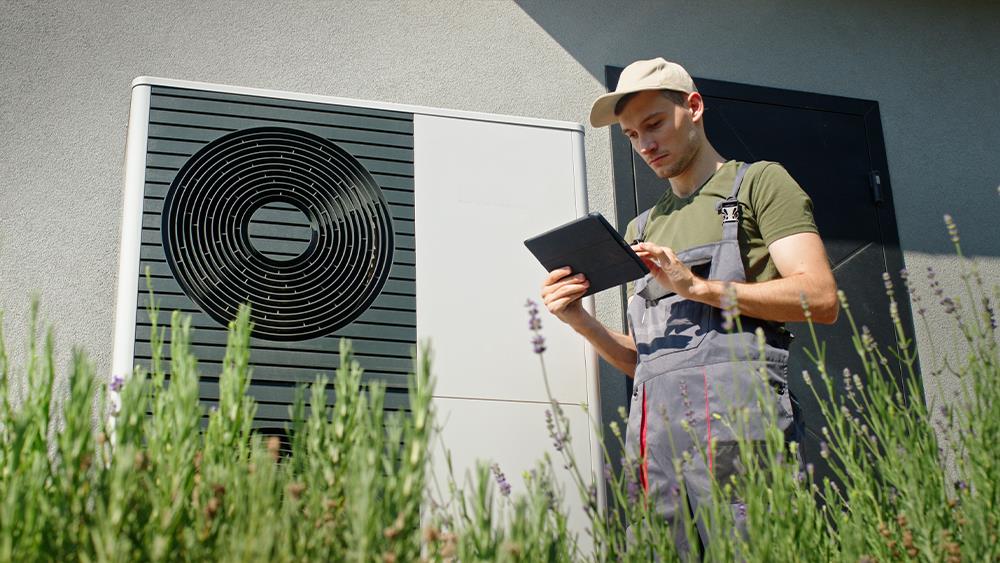

The UK Government has committed to a target of 600,000 installations of heat pumps a year by 2028, which is part of the nation’s journey towards Net Zero. However, renewable heating specialist Ryan Willdig at Heatforce thinks that this target is unrealistic and there are multiple blockers in the way, stopping the nation from achieving this figure.
We, of course, want the UK to invest more in heat pumps, as this will hugely help the nation hit the Net Zero target. However, the current pace of installation, the policies in place, the state of the infrastructure, and the lack of skilled installers we have in the UK just aren’t aligned to deliver this new target.
National skill shortage
There aren’t enough tradespeople in the UK trained to install heat pumps. According to the Heat Pump Association, over 41,000 full-time workers will be needed across the whole heat pump workforce, rising to 122,000 by 2035, to achieve governement targets. Training takes time, and cost can also be seen as a barrier in an industry of sole-traders and small businesses.
Without a nationwide effort to train and certify thousands of engineers, we simply won’t be able to hit the target by the set date, as there won’t be enough people to install these into people’s homes and businesses.
Public awareness remains low
If you’re not working in the sustainability or heat pump industry, then it is unlikely you will know what a heat pump is, the benefits, or how they work. While public awareness of heat pumps is increasing, in 2023, only half of Brits have heard of them, according to The Eco Experts.
Misinformation and confusion are everywhere, and until there's a mass education effort and awareness of the importance of heat pumps and their benefits, then the British public will stick to what they know: non-renewable fuels.
Upfront costs
Despite the British Government offering grants such as the Boiler Upgrade Scheme (worth £7,500), the initial cost of a heat pump is still a lot higher than that of a normal boiler.
As a result, and as the cost-of-living crisis continues to squeeze budgets, a lot of people will still choose to install a boiler over a heat pump, despite the potential economic benefits and savings in the long-run.
Infrastructure isn’t ready
While a lot of new properties may be built with the expectation of heat pumps being installed, many older properties need considerable adaptations (such as insulation upgrades, bigger pipes, or radiator replacements) to accommodate a heat pump successfully and allow it to work effectively. Without more government support, these homes will be left behind, as the costs are high. And this doesn't take into account the disruption caused by such modifications.
Mixed messaging from government
The timeline for a possible ban on the sales of fossil fuel boiler is constantly changing (originally slated for 2035, it has, for now, been scrapped altogether), and energy policies have created uncertainty among the public. Installers don’t want to invest and commit to promoting heat pumps while homeowners aren’t incentivised to commit to the investment.
Despite all those hurdles, I believe the UK can still get close to achieving its 2028 goal, but only with serious government investment in training, awareness, infrastructure and policy alignment.
While hitting the target doesn't seem very achievable right now, it can be with additional support. It won’t happen by accident, however. The public wants lower bills and greener homes; we just need to clear the path for them and bring clarity and understanding about heat pumps.